In recent years, the mortgage industry has seen a rise in non-qualified mortgages (Non-QM), also referred to as Non-Qualified loans. These are home loans that do not meet the criteria set by the Consumer Financial Protection Bureau (CFPB) for Qualified Mortgages (QM). While Non-QM loans have been around for a while, their popularity has increased in recent years, and they are now becoming more common.
So, what is a Non-QM mortgage, and how does it differ from a Qualified Mortgage? In this blog post, we will explore Non-QM mortgages, compare them to Qualified Mortgages, and list the pros and cons of each.
What is a Non-QM mortgage?
Non-QM mortgages are home loans that do not meet the strict criteria set by the CFPB for Qualified Mortgages. The CFPB created the Qualified Mortgage (QM) rule to ensure that borrowers can repay their mortgage loans.
The QM rule requires lenders to verify a borrower’s ability to repay their loan by meeting certain criteria, such as debt-to-income ratio, credit score, and employment history. If a borrower does not meet these requirements, they may be considered a high-risk borrower, making it difficult to obtain a mortgage through traditional lenders.
Non-QM mortgages, on the other hand, are designed to provide loans to borrowers who do not meet the strict requirements of a Qualified Mortgage. These loans do not conform to the QM rules, but they are still subject to other lending standards.
Non-QM mortgages may be suitable for borrowers who are self-employed, have inconsistent income, or have had financial difficulties in the past.
How does Non-QM differ from Qualified Mortgages?
The main difference between Non-QM mortgages and Qualified Mortgages is the lender’s ability to verify the borrower’s ability to repay the loan. Qualified Mortgages require lenders to verify a borrower’s ability to repay the loan based on specific criteria, such as debt-to-income ratio, credit score, and employment history.
Non-QM mortgages do not have to meet these criteria, but they still need to be underwritten and approved by a lender.
Another difference between the two is that Qualified Mortgages come with legal protections for lenders. If a borrower defaults on a Qualified Mortgage, the lender is less likely to be held liable for the loan’s failure.
Non-QM mortgages, on the other hand, do not come with these protections, making it riskier for lenders to provide these types of loans.
Pros And Cons of Non-QM Mortgages
Like any other financial product, Non-QM mortgages come with their own set of pros and cons. Let’s take a look at some of them.
Pros:
Flexibility – Non-QM mortgages provide more flexibility to borrowers who may not meet the strict requirements of a Qualified Mortgage. Borrowers who are self-employed, have inconsistent income, or have had financial difficulties in the past may find it easier to obtain a Non-QM mortgage.
Higher Loan Amounts – Non-QM mortgages may allow borrowers to take out larger loans than what is typically available through Qualified Mortgages.
Faster Processing Time – Non-QM mortgages may have a faster processing time than Qualified Mortgages since they do not have to go through the same underwriting process.
Cons:
Higher Interest Rates – Non-QM mortgages tend to come with higher interest rates than Qualified Mortgages since they are riskier for lenders.
Limited Availability – Non-QM mortgages may be more challenging to find than Qualified Mortgages since they are not as widely offered by traditional lenders.
Riskier for Borrowers – Since Non-QM mortgages do not have the same legal protections as Qualified Mortgages, borrowers may be at a higher risk of defaulting on their loans, which could result in foreclosure.
Who benefits from Non-QM loans?
An example would be a self-employed borrower who cannot qualify using their tax returns. They need an alternative solution such as a Bank Statement loan to qualify for a home loan.
How to Qualify
There are several Non-QM loan programs available depending on a borrower’s specific financials and employment. Below are some of the most popular Non-QM programs:
Bank Statement Program
Helps self-employed borrowers qualify by basing income on their cash flow and liquid assets since their tax returns and W-2s of pay stubs alone may not be reflective of their ability to repay.
Some lenders allow personal & business bank statements, and some may allow a combination of bank statements.
Asset Depletion
Allows high net worth individual borrowers to qualify for loans using their assets and does not require employment or debt to income to justify ability to repay. For borrowers who have enough assets to buy the home outright, but they don’t want to liquidate their assets to do so.
Lenders will typically divide the amount of assets by a set number of months, depending on their guidelines, which can be from 60 to 84 months, and that number will be used as the income for qualification.
Debt Service Cover Ratio (DSCR)
This is a loan strictly for investment properties. Borrowers are qualified based on rental analysis to determine property cash flow versus income and debts. The DSCR is derived from dividing the rental income by the PITI (principal & interest, taxes, and insurance).
Lenders consider a strong DSCR to be 1.25 or greater. However, some lenders will allow a DSCR of one or less. Keep in mind that the lower the DSCR, the higher the risk for the loan to default which will cause most lenders to increase the rate and the cost of the loan.
It’s also important to note that there are no uniform underwriting standards for Non-QM loans, and lenders tend to specialize in certain types of Non-QM programs.
Interest rates and loan terms can also vary widely from lender to lender. You should shop around for a Non-QM loan as rates and program qualifications may vary from lender to lender.
Bottom Line
Overall, a conventional mortgage may be a better choice if you have a strong credit history, can afford a larger down payment, and want more flexibility in terms of loan options. However, if you have a lower credit score or cannot afford a large down payment, a government-backed loan may be a better option..
We Can Help
If you would like to speak to us and learn more about this topic, please feel free to contact us at 800-653-8987 or email us at hello@loanprofessors.com.

